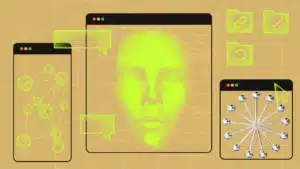The Diamond Standard Company uses precious stones to restore the payment network

Diamond Standard Co.
CARATS moves away from traditional centralized remittance and payment services by using tokenized diamonds backed by real-world commodities to facilitate payments, funds and wealth transfers between users.
Individuals can purchase these tokenized diamonds in whole or in part, trade them, transfer them, exchange them for local fiat currencies, or exchange the token to deliver physical diamonds.
The Standard Diamond Company achieves this by issuing physical coins and bars, encrusted with physical diamonds, and an integrated chip that audits the diamonds and distributes a version of the asset on the blockchain.
Users can send these CARATS through SMS or using social media platforms, providing a way to send unbanked electronic payments.
Because the CARATS system is not actually a cryptocurrency, but a way to exchange receipts for a physical commodity, the platform is protected from the usual regulatory hurdles surrounding money transfer services.
This allows CARATS to operate as a payment hub without the hassle of obtaining a money transfer license in each jurisdiction where the service operates.
Elon Musk's X social media platform has faced these same regulatory challenges in its efforts to become a social media network with an integrated payment system.
In the year By 2023, X was able to obtain money transmitter licenses in the US states of Missouri, Michigan, Arizona, Georgia, Maryland, New Hampshire, Pennsylvania, South Dakota, Kansas, Wyoming and Rhode Island.
Related: X Launches AI-Curated Audiences for Advertisers
However, the platform is required to obtain a money transfer license in each of the 50 US states, as well as a license for all countries where the social media platform operates money transfer services.
This means hundreds of individual licenses must be issued before X becomes a viable money transfer service. Cormac Keaney, CEO of Diamond Standard, said:
“Many remitters are stuck in the past, ignoring all the tools available or bound by legal and regulatory barriers to payments and money transfers.”
“This is a tough nut to crack, even for forward-thinking payments innovators like Elon Musk, who has failed to do business as a money transmitter in 34 US states and 200 other international jurisdictions,” he explained.
Similarly, centralized crypto exchanges face the same problem of obtaining the services of a specific platform to operate remittance licenses and other licenses in each region.
Despite these strict regulations, many centralized crypto exchanges that hold remittance licenses still engage in questionable activities that lead to losses and loss of assets to clients, most notably FTX in 2022.
Obtaining these regulatory permits is often time-consuming and costly. IBTCEX, Huobi HK, QuanXLab and four other exchanges recently pulled their applications for operating licenses in the Hong Kong market.













